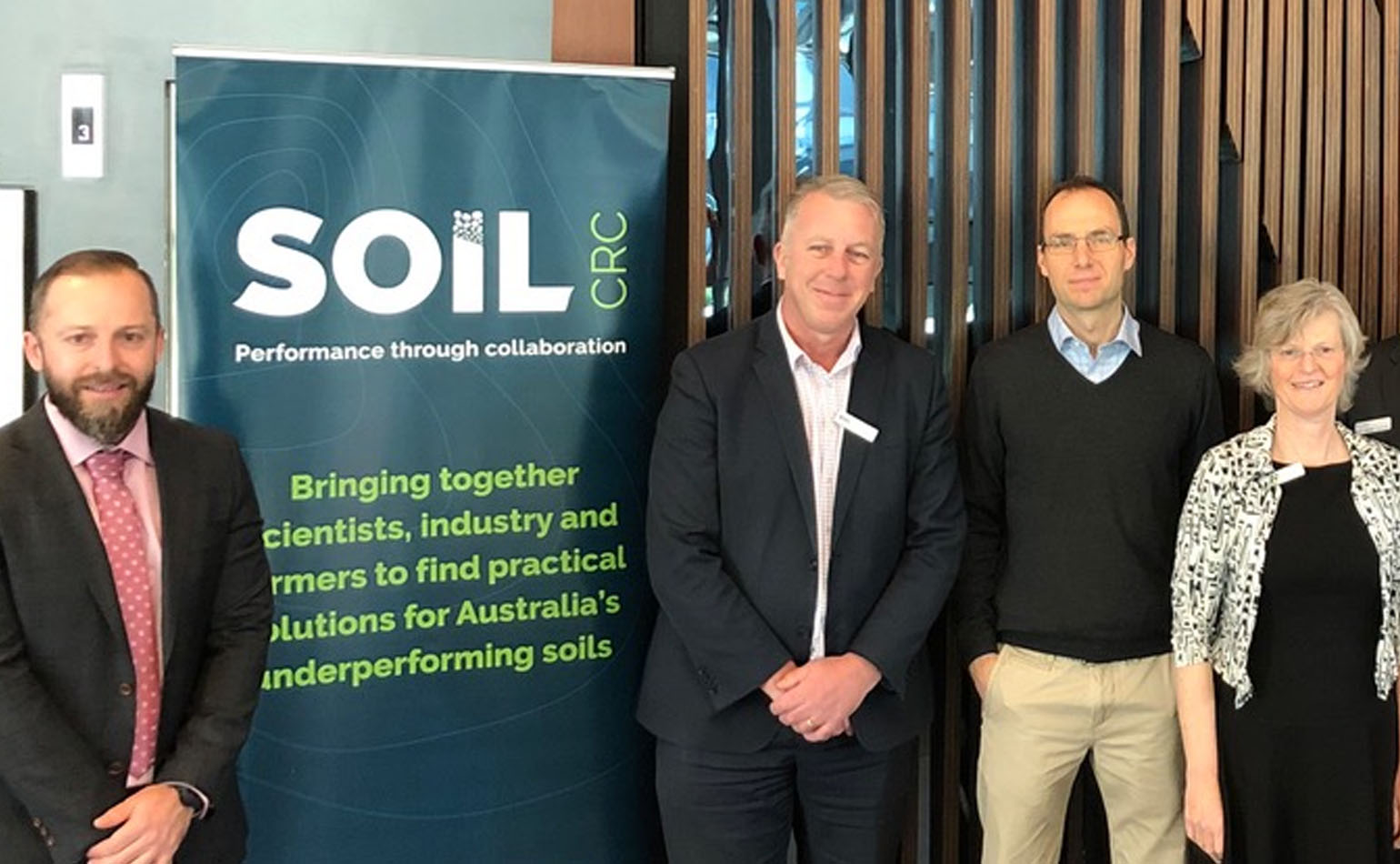L-R Nick Pawsey, Michael Crawford, Francisco Ascui, Catherine Allan
Life has come full circle for Dr Francisco Ascui, an expert in environmental accounting and finance. He grew up on a small farm in northern Tasmania, studied at the University of Tasmania and after a long stint working and studying in the UK, he has recently returned to the University of Tasmania to work as an Adjunct Associate Professor based at the Tasmanian Institute of Agriculture (TIA).
One of the highlights for Francisco has been his work in emerging carbon markets, the EU Emission Trading Scheme, voluntary carbon offsetting and the international Clean Development Mechanism while in the UK.
“I think problems like climate change are too big for governments to deal with on their own – the business and finance sectors in particular, have an essential role to play in mobilising the resources and innovation that are needed.
“During this time, we were basically making up market-based mechanisms from scratch – turning theoretical ideas first into policy, then legislation, then detailed rules and regulations which led to new business models and eventually real investments that reduced millions of tonnes of carbon dioxide and other greenhouse gases,” he says.
Francisco then began working as an academic at the University of Edinburgh Business School, where he set up the world’s first Masters of Science in Carbon Finance. This program aimed at building interdisciplinary capacity to mobilise and deliver the complex task of keeping climate change below two degrees.
Not one to stay still, he also completed his PhD in carbon accounting while at the University of Edinburgh.
In 2015, Francisco moved back to Australia and started work in a new area in what he terms ‘natural capital credit risk assessment (NCCRA)’. This work grew out of a project with Sense-T at the University of Tasmania on potential applications of environmental data for the financial sector.
“We realised that, in Australia at least, the financial sector was particularly concerned about its exposure to natural capital risks in agriculture. By natural capital risks, I mean the risks associated with a business’s impacts or dependencies on natural capital – the stocks of natural assets that provide flows of environmental goods and services that have value for society,” he says.
The risk for businesses becomes a credit risk for the banks who lend to those businesses. Francisco believes that while banks were becoming aware of these risks, they lacked a methodology or framework for assessing risks in a consistent way and were unable to deal with the variation in risks between different agricultural activities and regions.
“I started drawing together the evidence for material natural capital risks in different sectors. I eventually produced a generic framework for NCCRA in agriculture which was published this year by the Natural Capital Finance Alliance, a body representing over 40 leading international financial institutions that have committed to start integrating natural capital considerations into the decision-making processes for all of their financial products and services,” Francisco explains.
Of all the natural assets, Francisco believes soil is one of the most important so he is excited to be working at the Soil CRC as part of the project led by Dr Nick Pawsey of Charles Sturt University – Collaborative approaches to innovation.
“We need all of the incredible wealth and diversity of expertise that the Soil CRC brings together in order to solve some of the complex challenges associated with sustaining and managing this fragile and essential natural resource,” he says.
“As part of the Collaborative approaches to innovation project we are running a number of workshops with farmer groups and financial sector representatives, aiming to develop, through systemic co-inquiry and co-innovation, a research agenda that will really help to activate financial markets to reward farmers for good soil stewardship.”
Francisco believes that the Soil CRC will make a real difference to how soils are managed in Australia.
“I hope the Soil CRC can develop technical solutions that are socially and financially viable, and also social and financial solutions that are technically viable, and I hope that these different perspectives are constantly working together throughout the life of the CRC.”
On 15 October, Francisco will be speaking at the Australian Farm Institute’s Valuing Agriculture’s Natural Capital Roundtable in Canberra, which is sponsored by the Soil CRC. The topic of his session will be Opportunities to build natural capital. This is a great opportunity for the Soil CRC to contribute to the national conversation about the future of the agricultural ecosystems services market in Australia and how good soil stewardship can be rewarded.

